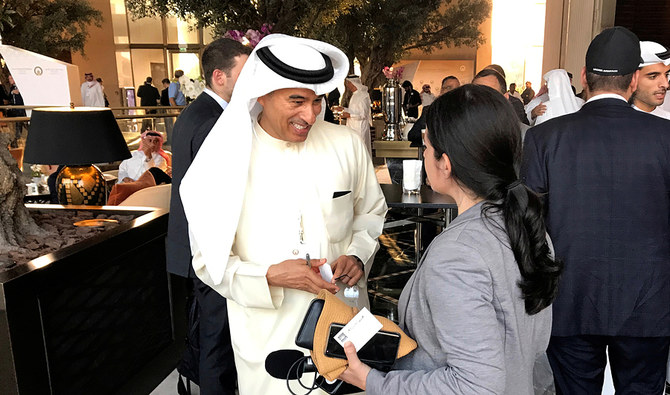DOHA/JERUSALEM/GAZA CITY: Mediator Qatar announced early Monday that an agreement has been reached to release an Israeli civilian hostage and allow Palestinians to return to northern Gaza, easing the first major crisis of the fragile ceasefire between Israel and Hamas.
Qatar’s statement said Hamas will hand over the civilian hostage, Arbel Yehoud, along with two other hostages before Friday. And on Monday, Israeli authorities will allow Palestinians to return to northern Gaza.
The office of Israeli Prime Minister Benjamin Netanyahu in a statement said the hostage release — which will include soldier Agam Berger — will take place on Thursday, and confirmed that Palestinians can move north on Monday. Israel’s military said people can start crossing on foot at 7 a.m.
Under the ceasefire deal, Israel on Saturday was to begin allowing Palestinians to return to their homes in northern Gaza. But Israel put that on hold because of Yehoud, who Israel said should have been released on Saturday. Hamas accused Israel of violating the agreement.
Netanyahu's office said that another six hostages would be released in the coming week, after talks with Hamas. Three would be released on Thursday and another three on Saturday, said a statement from his office.
The breakthrough preserves a fragile ceasefire in the Israel-Hamas war, which has devastated the Gaza Strip and displaced nearly all its residents, paving the way for more hostage-prisoner swaps under a deal aimed at ending the more than 15-month conflict.
Israel had been preventing vast crowds of Palestinians from using a coastal road to return to northern Gaza, accusing Hamas of violating the truce agreement by failing to release civilian women hostages.
“Hamas has backtracked and will carry out an additional phase of releasing hostages this Thursday,” Netanyahu’s office said in a statement.
Trump’s plan meets mixed reactions
Palestinian leaders meanwhile slammed a plan floated by US President Donald Trump to “clean out” Gaza, vowing to resist any effort to forcibly displace residents of the war-battered territory.
Trump said Gaza had become a “demolition site,” adding he had spoken to Jordan’s King Abdullah II about moving Palestinians out.
“I’d like Egypt to take people. And I’d like Jordan to take people,” Trump told reporters.
Palestinian leader Mahmud Abbas, who is based in the Israeli-occupied West Bank, “expressed strong rejection and condemnation of any projects” aimed at displacing Palestinians from Gaza, his office said.
Bassem Naim, a member of Hamas’s political bureau, told AFP that Palestinians would “foil such projects,” as they have done to similar plans “for displacement and alternative homelands over the decades.”
Islamic Jihad, which has fought alongside Hamas in Gaza, called Trump’s idea “deplorable.”
For Palestinians, any attempt to move them from Gaza would evoke dark memories of what the Arab world calls the “Nakba,” or catastrophe — the mass displacement of Palestinians during Israel’s creation in 1948.
“We say to Trump and the whole world: we will not leave Palestine or Gaza, no matter what happens,” said displaced Gaza resident Rashad Al-Naji.
Trump floated the idea to reporters Saturday aboard Air Force One: “You’re talking about probably a million and half people, and we just clean out that whole thing.”
Moving Gaza’s roughly 2.4 million inhabitants could be done “temporarily or could be long term,” he said.
Israel’s far-right Finance Minister Bezalel Smotrich — who opposed the truce deal and has voiced support for re-establishing Israeli settlements in Gaza — called Trump’s suggestion of “a great idea.”
Tantamount to ‘ethnic cleansing’
The Arab League rejected the idea, warning against “attempts to uproot the Palestinian people from their land.”
“The forced displacement and eviction of people from their land can only be called ethnic cleansing,” the league said in a statement.
Jordanian Foreign Minister Ayman Safadi said “our rejection of the displacement of Palestinians is firm and will not change. Jordan is for Jordanians and Palestine is for Palestinians.”
Egypt’s foreign ministry said it rejected any infringement of Palestinians’ “inalienable rights.”
In Gaza, cars and carts loaded with belongings jammed a road near the Netzarim Corridor that Israel has blocked, preventing the expected return of hundreds of thousands of people to northern Gaza.
Israel had said it would prevent Palestinians’ passage until the release of Arbel Yehud, a civilian woman hostage. She is among those slated for return on Thursday, according to Netanyahu’s office.
Hamas said that blocking returns to the north also amounted to a truce violation, adding it had provided “all the necessary guarantees” for Yehud’s release.
Israeli army spokesman Avichay Adraee said Monday that residents would be allowed to return on foot starting at 07 a.m. (0500 GMT) and by car at 9 a.m.
Staggered releases
During the first phase of the Gaza truce, 33 hostages are supposed to be freed in staggered releases over six weeks in exchange for around 1,900 Palestinians held in Israeli jails.
The most recent swap saw four Israeli women hostages, all soldiers, and 200 prisoners, nearly all Palestinian, released Saturday — the second such exchange during the fragile truce entering its second week.
Dani Miran, whose hostage son Omri is not slated for release during the first phase, demonstrated outside Netanyahu’s office in Jerusalem on Sunday.
“We want the agreement to continue and for them to bring our children back as quickly as possible — and all at once,” he said.
The truce has brought a surge of food, fuel, medicines and other aid into rubble-strewn Gaza, but the UN says “the humanitarian situation remains dire.”
Of the 251 hostages seized during Hamas’s October 7, 2023 attack that ignited the war, 87 remain in Gaza, including 34 the military says are dead.
The Hamas attack resulted in the deaths of 1,210 people, mostly civilians, according to an AFP tally based on official Israeli figures.
Israel’s retaliatory offensive has killed at least 47,306 people in Gaza, the majority civilians, according to figures from the Hamas-run territory’s health ministry that the United Nations considers reliable.



























